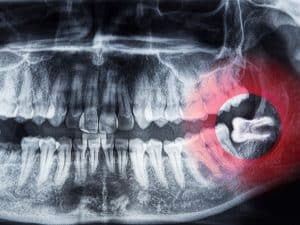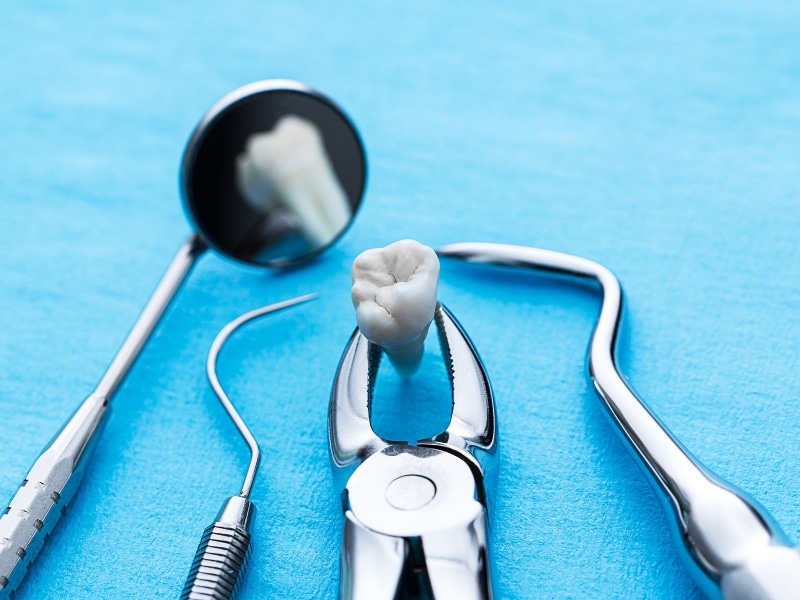Undergoing wisdom tooth removal can be a significant procedure. Following wisdom tooth removal aftercare instructions is essential to ensure proper healing and avoid potential complications. Ignoring aftercare can lead to several health issues that could prolong your recovery or cause long-term damage. This article will explore what could happen if you ignore aftercare advice, how infection affects recovery, and which mistakes you should avoid.
Why is aftercare important after wisdom tooth removal?
After your wisdom tooth removal, the care you take in the days and weeks following the procedure can drastically affect how quickly and smoothly you heal. Proper aftercare prevents complications, promotes healing, and helps reduce the risk of infection.
- Reduces risk of infection: Proper aftercare ensures the surgical site remains clean and free from bacteria, lowering the chances of a disease.
- Promotes faster healing: Following the guidelines can speed up your recovery, allowing you to return to your routine sooner.
- Reduces pain and discomfort: Following aftercare instructions, like prescribed pain relief, can minimise discomfort and inflammation.
- Prevents dry socket: Ignoring the recommended care increases the chances of developing a dry socket. The blood clot at the extraction site is dislodged in this painful condition.
- Minimises swelling and bruising: Appropriate aftercare, including ice packs, can help reduce swelling and bruising after the surgery.
Following these simple guidelines will ensure a quicker and less painful recovery, allowing you to return to your routine sooner.
What could happen if you don’t follow aftercare instructions?
Neglecting your aftercare instructions can lead to severe complications that delay healing or cause further health issues. Not following the necessary steps could result in an uncomfortable and prolonged recovery.
| Consequence | Description |
| Increased risk of infection | Failure to keep the area clean can lead to bacterial infections. |
| Delayed healing | Improper care can slow down healing and prolong recovery. |
| Excessive bleeding | Not managing blood clot care may cause prolonged bleeding. |
| Pain and discomfort | Disregarding pain management can lead to unnecessary pain and swelling. |
| Dry socket | Premature loss of the blood clot causes severe pain and delayed healing. |
Ignoring aftercare instructions might seem harmless but can lead to more serious and painful consequences.
Can ignoring aftercare lead to long-term oral health problems?
Suppose aftercare is ignored or not properly followed. In that case, long-term oral health problems can arise that affect your overall well-being and dental health. While the immediate aftermath of neglecting aftercare can be uncomfortable, the long-term consequences can be far worse.
- Gum disease: Failure to follow aftercare instructions can contribute to the development of gum infections like pericoronitis, in the extraction area.
- Shifting of other teeth: Neglecting to follow aftercare can sometimes cause adjacent teeth to move or become misaligned, leading to further dental issues.
- Cysts and tumours: If an infection is not treated, it can form cysts or tumours in the mouth, requiring surgery or additional dental work.
- Bone loss: An untreated infection can cause bone loss, which may require further treatments to correct.
- Permanent nerve damage: If the healing process is interfered with, nerve damage may occur, resulting in ongoing numbness or pain.

Ignoring the aftercare instructions can lead to complications that delay recovery and, in the long run, affect oral health.
How can infection affect recovery after tooth removal?
If proper care isn’t followed, infection is one of the most common complications after wisdom tooth removal. A surgical site infection can slow recovery and cause a range of other issues, including pain, swelling, and prolonged healing.
- Pain and swelling: An infection can lead to increased pain, swelling, and tenderness around the extraction site, making recovery more uncomfortable.
- Fever and malaise: A bacterial infection can cause systemic symptoms like fever, chills, and unwellness.
- Need for antibiotics: If an infection develops, you may need to take antibiotics to clear it up, which may delay healing.
- Spread of infection: In rare instances, untreated infections may spread to other areas of the mouth or even different parts of the body, potentially causing serious health issues.
- Further procedures: Severe infections may require additional procedures, such as draining the infected area or redoing the extraction of the infected tooth, further complicating recovery.
Keeping the extraction site clean and following aftercare guidelines can significantly lower the risk of infection and promote faster healing.
Is it normal to experience pain after wisdom tooth removal?
Experiencing some pain after wisdom tooth removal is normal, especially within the first few days. However, the level of pain and discomfort should decrease as your healing progresses. If you experience prolonged or worsening pain, it may be a sign that aftercare isn’t being followed properly or that a complication has arisen.
- Mild pain: Most people experience mild discomfort for the first 3-4 days, which can be managed with prescribed pain relief or methods to relieve wisdom tooth pain at home.
- Moderate pain: If the pain persists beyond a few days or intensifies, it might indicate issues like infection or dry socket.
- Severe pain: Intense or escalating pain, especially after a few days of recovery, could signal an infection or other serious complication.

Pain is expected, but ignoring aftercare can make it worse. Proper care can help manage discomfort and speed up recovery.
Which aftercare mistakes should you avoid?
To ensure a smooth and quick recovery, it’s essential to avoid common mistakes that can hinder the healing process. Being aware of these mistakes can help you prevent complications.
| Aftercare Mistake | Impact |
| Ignoring medication instructions | Delays recovery and may cause complications |
| Smoking | Reduces blood flow and increases infection risk |
| Eating hard or hot foods | Irritates surgical site and delays healing |
| Not keeping the area clean | Increases risk of infection |
| Overexerting yourself | It may cause excessive bleeding or discomfort |
Avoiding these common mistakes can ensure a quicker and less painful recovery.
Why is proper wisdom tooth removal aftercare so important?
It’s normal to experience some discomfort after your wisdom tooth removal. Still, it should be manageable with pain medications and proper care. If you experience prolonged or severe pain may indicate a complication, in which case expert tooth extraction services can help.
- Reduces complications: Following the aftercare instructions prevents common complications such as infections, dry sockets, and delayed healing.
- Promotes faster healing: Properly caring for the surgical site promotes quicker tissue regeneration, helping you recover faster.
- Minimises pain: Proper care can help manage pain and swelling, making the recovery process much more comfortable.
- Protects your oral health: Ensuring the healing process is not disturbed prevents long-term complications affecting your oral health and well-being.
Proper aftercare isn’t just a suggestion – it’s vital for a successful and stress-free recovery.
Conclusion
In conclusion, wisdom tooth removal is a significant procedure requiring careful aftercare attention. Ignoring aftercare instructions can lead to complications such as infections, dry sockets, and long-term oral health issues. To ensure a quick and painless recovery, follow your dentist’s advice carefully and seek help if something doesn’t feel right.
If you’re looking for expert care during your recovery or need help with a wisdom tooth removal procedure, Marsfield Dental Care is here to assist.

